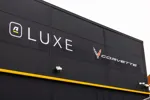This state measure, based on a 1959 agreement between the Bund (federal government) and the Land of Lower Saxony, confers special rights on shareholders which have 20% of voting rights. Additionally, the law confers on the Bund and the Land a specific right of mandatory representation in the company's Supervisory Board, irrespective of the number of shares they hold. Traditionally, both the Bund and the Land held roughly 20% voting rights in VW, whereas nowadays the Land is its main shareholder, with roughly 20% voting rights and two mandatory members of the board.
The Commission argues that these provisions of the VW law make it substantially less attractive for other EU investors to acquire the company's shares with a view to participating effectively in management decisions or controlling it. The infringement procedure was initiated by sending a letter of formal notice in March 2003, and the reply by the German authorities has not changed the Commission's view that certain provisions of that law act as a disincentive on investment from other Member States, in violation of EC Treaty rules on the free movement of capital (Article 56) and the right of establishment (Article 43). The Commission's request takes the form of a reasoned opinion, the second stage of infringement procedures under Article 226 of the EC Treaty. Should the German authorities not take satisfactory steps to remedy the infringement of Community law within two months of receiving the reasoned opinion, the Commission may decide to refer the case to the European Court of Justice.
The EC's decision comes at a time when VW Group's financial performance is disappointing investors. Analysts have heaped criticism on VW for moving too ambitiously upmarket with the production of the VW Phaeton and the acquisition of brands such as Bentley, Lamborghini and Bugatti, cannibalisation of its own sales through a complex platform strategy, and excessive vertical integration of its component production systems. Much of the criticism has targeted former management board chairman Ferdinand Piech rather than his successor Berndt Pischetsrieder, who has warned shareholders not to expect an improvement in results this year.














Login to comment
Comments
No comments have been made yet.